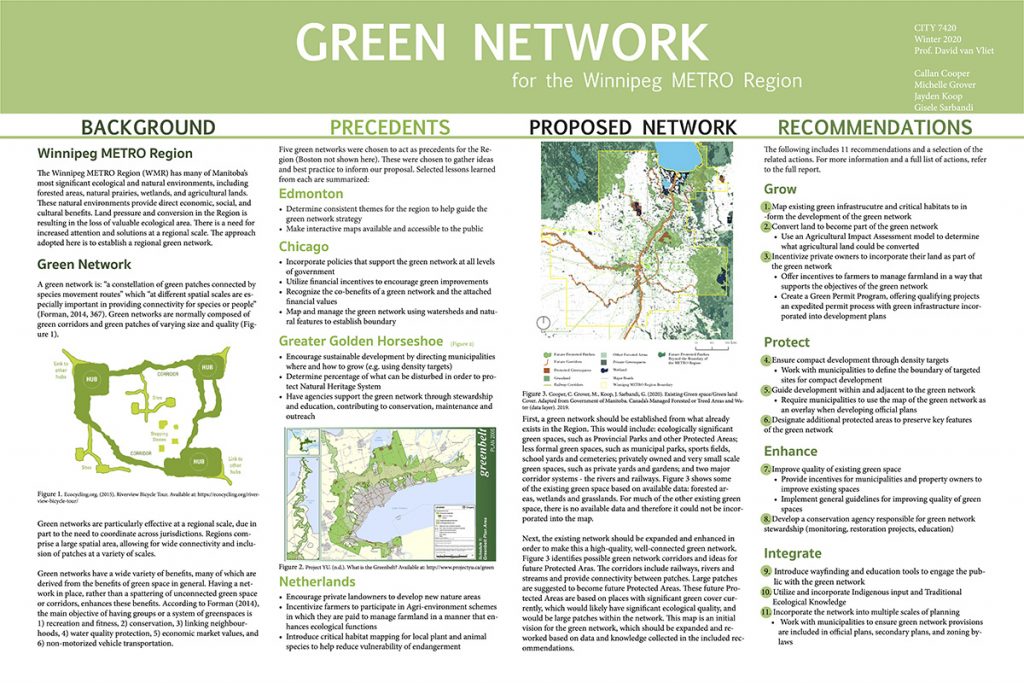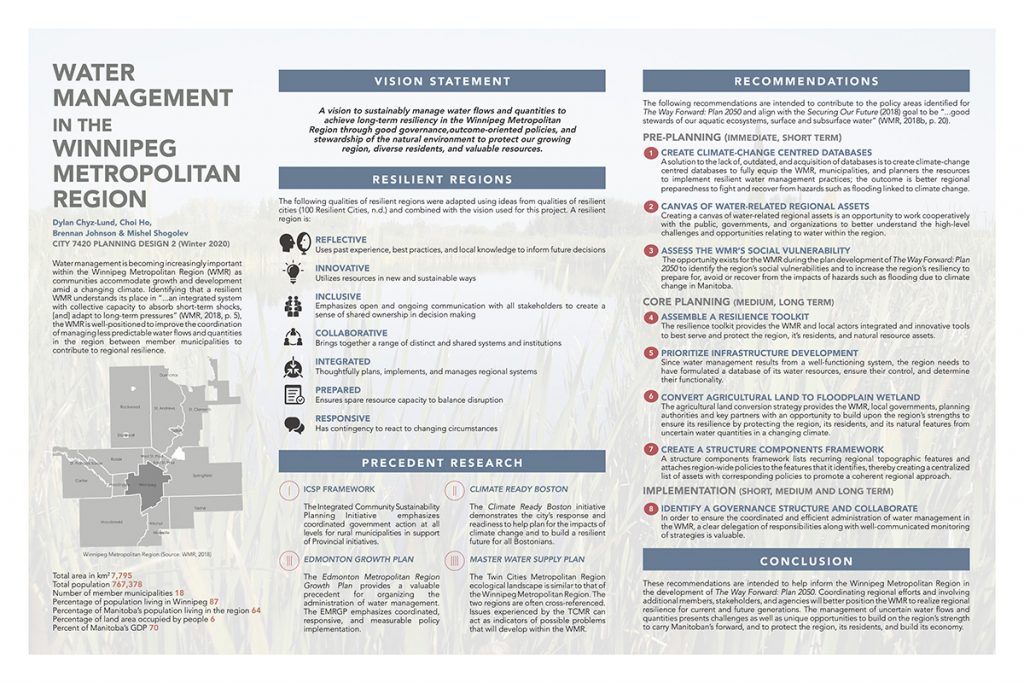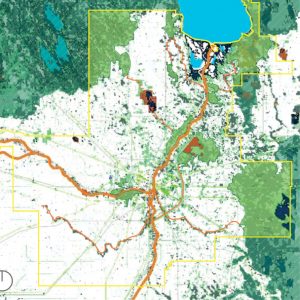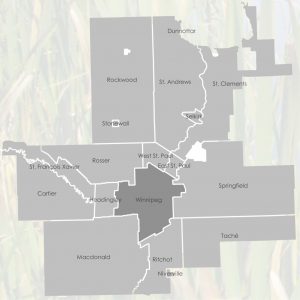
We are pleased to announce YEE-O 2020 – Year End Exhibition – Online edition for this 2019-2020 academic year. This annual event celebrates the hard work and creative achievements of over 500 undergraduate and graduate students from every unit and level in the Faculty of Architecture at the University of Manitoba. Unfortunately, COVID-19 led to the cancellation of this in-person event, but sharing and celebrating student achievements must go on!
Planning for Regional Resiliency: supporting regional plan development
Instructor: David van Vliet
The Studio exposes student to the motives, complex issues, challenges and opportunities for regional planning, with respect to landuse planning co-ordination, forecasting, and environmental protection. Students learn about the function of regional agencies from precedents in Canadian and global contexts, and global best practices for more sustainable management of land and resources. The goal is to gain a situational understanding of the challenges of planning and coordination at the regional scale, and through individual and collaborative research and consultation with the Winnipeg Metropolitan Region (WMR) and other stakeholders, identify opportunities and key priorities culminating with content, mapping and recommendations for a more sustainable and resilient region.
The WMR is a platform for the 18 municipalities to work on regional issues and solutions. In 2019, the government of Manitoba mandated the WMR to develop a strategy to coordinate land use and servicing in the Region. As a result, the WMR has been working to develop a Regional Growth and Servicing Plan called The Way Forward Plan 2050, with the intention of setting a proper foundation for member communities to thrive while increasing their economic competitiveness. The two final projects each produced a report and two posters
Green Network in the WMR: The report supports developing a regional strategy for a green network in the Winnipeg METRO Region, to increase the resiliency of the Region against climate change, enhance the quality of life by protecting natural and environmental resources, and providing ecological, environmental, and socio-economic benefits to metro communities.
Water Management in the WMR: The report seeks to complement the existing WMR planning documents to support by answering the question: What are recommended water management policies and practices for regional resilience and how can they best be implemented? The report offers long-range planning recommendations with strategies for implementation to build strong communities through collaborative governance, and investing in infrastructure and green infrastructure, supporting the stewardship of natural lands and water, and the sustainable management of resources.
Special thanks to Natalie Lagasse and Ryan Litovich from the Winnipeg Metropolitan Region office for their valued engagement with the class.
Green Network
Callan Cooper, Michelle Grover, Jayden Koop & Gisele Sarbandi

Water Management
Dylan Chyz-Lund, Choi Ho, Brennan Johnson & Mishel Shogolev



